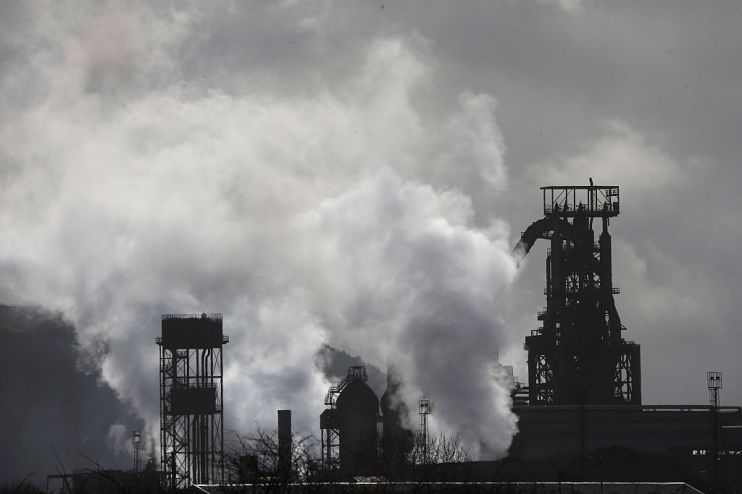Government can give real steel to the green revolution

Governments around the world are accelerating action against climate change. The election of Joe Biden has raised hopes that the US will take a leap forward and we are seeing more ambitious targets being set for decarbonisation in Europe, Japan and even China.
In the UK, Prime Minister Boris Johnson has set out a promising plan for a green industrial revolution with renewable energy and hydrogen at its heart – and through its Energy White Paper charted the UK’s 30-year path to a net zero economy. It will be top of new Business Secretary Kwasi Kwarteng’s to do list.
There are reasons for optimism. But for the UK to be at the forefront of this revolution, we need to change the way we build and make things.
Steel is responsible for nearly ten per cent of all direct emissions from fossil fuels and emits over three times as much carbon as the aviation industry. Put simply, if we don’t change the steel industry, we will fail to meet our carbon targets.
That’s why I came out strongly in support of the UK’s Climate Change Committee last month when it urged the Government to target near zero emissions for steelmaking by 2035.
Successive governments have seen steel as a problem to manage, rather than an opportunity. Industry is also to blame. It has lacked vision or sustained investment over many decades.
But now, through decarbonisation, we have a chance to reinvent the sector and make it both economically successful and environmentally sustainable. Green manufacturing could add up to £20bn to UK GDP. But seizing the opportunity will require real mettle.
LIBERTY Steel is already moving its steelmaking away from carbon powered production and has an ambition to become carbon neutral by 2030. This is five years faster than the Climate Change Committee’s target and way ahead of our peers. But we believe it is achievable.
The UK has all the ingredients needed to make this change; a plentiful supply of scrap which can be recycled into fresh steel with just one third of the emissions of conventional production; a growing renewable energy supply that could make carbon free production viable; a skilled workforce; and consistent demand.
So why is the industry not there yet? First, the UK steel industry has become fragmented – it lacks the consolidated mass needed to drive change.
Second, there is a lack of industry collaboration to develop new technologies such as hydrogen steel making.
Third, and perhaps most importantly, the UK needs a much stronger policy framework and incentives regime to drive decarbonisation and reward ambition.
Specifically;
- Brexit presents the opportunity for a reformed UK carbon trading scheme that rewards low carbon steel producers and incentivises investment in low carbon technology such as electric arc furnaces;
- Consistent with this approach, government should remove the policy anomaly which subsidises coal use in steel production. We must accept that old-fashioned blast furnaces can’t be the basis of the industry long term and embrace green steel;
- An export tariff on steel scrap should also be introduced to encourage domestic recycling. If we stop exporting scrap and instead recycle it, we can meet nearly all of the UK’s demand for steel with domestic resources.
Steel and aluminium are the building blocks of our economy – we need them to build the schools, hospitals and transport networks we all reply upon. They also provide high-quality jobs in areas of the country that rely solely on our industry.
Decarbonisation of steel can enrich both economy and environment, sustaining jobs and bringing down emissions. The Committee on Climate Change is right – we need to move further and faster.
We now need an equally ambitious policy framework, alongside an ambitious industry. If the Government wants to lead the green industrial revolution, then steel is its litmus test.
Read more: Those who profit in Hong Kong should speak out for its peoples’ freedom